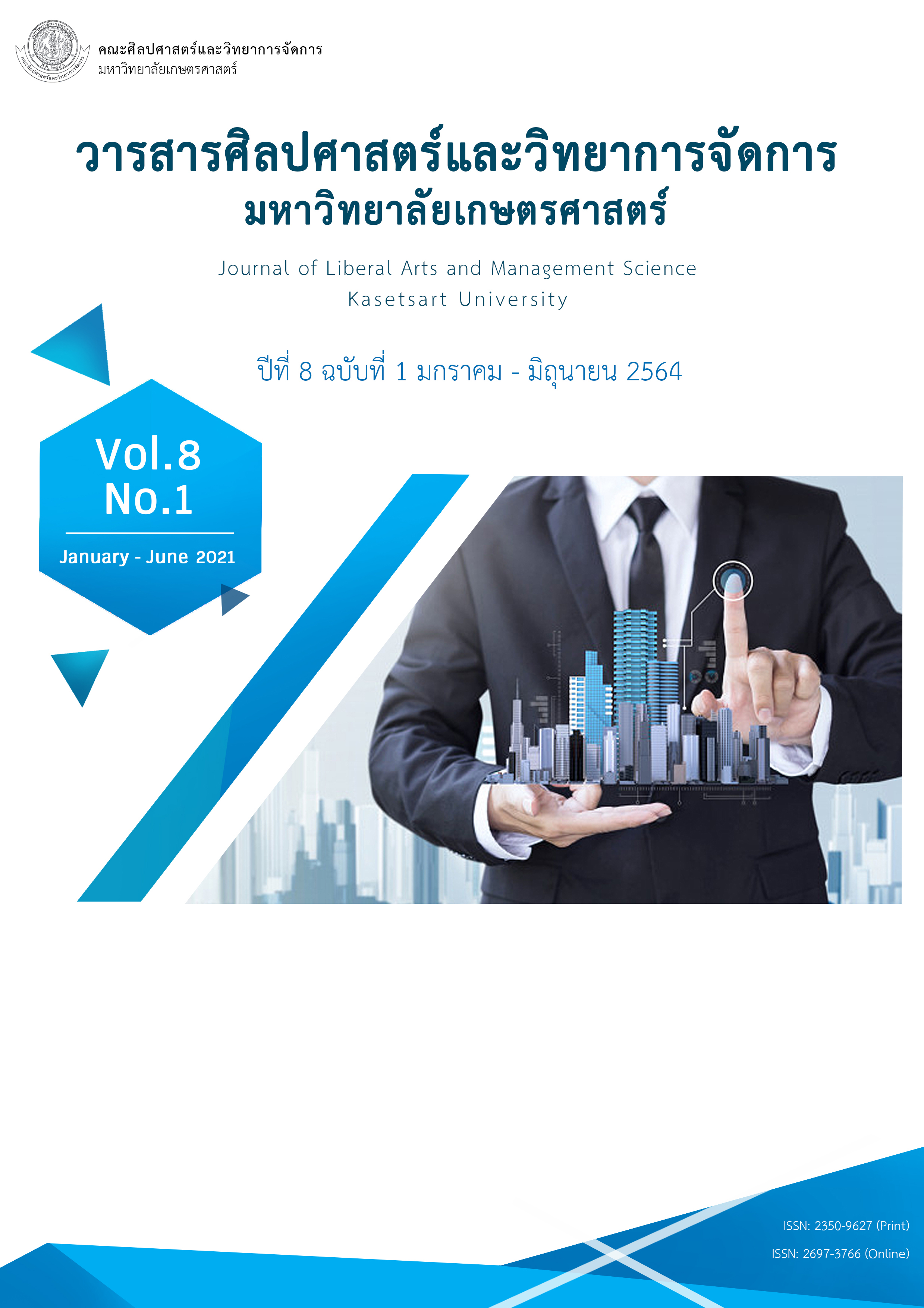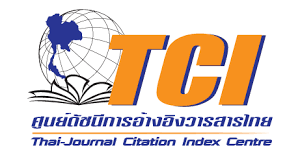A STUDY OF BELIEFS OF HONG KONGESE LEARNERS REGARDING LEARNING THAI AS A FOREIGN LANGUAGE
Abstract
This study purposed to investigate the beliefs of Hong Kongese learners of Thai as a foreign language (TFL). Participants were Hong Kongese TFL learners (n = 7) who took a Thai language class at the language center of the renowned university in Hong Kong. Beliefs About Language Learning Inventory (BALLI) questionnaire was used to collect data. The findings showed that Hong Kongese TFL learners believe that they can learn Thai language although they view that Thai is a medium-difficult language to learn. Also, they believe that they will have many opportunities to use Thai language if they can converse Thai very well. This study suggests that understanding the TFL learners’ beliefs about Thai language learning is critical to plan the proper Thai language instructions. Future research may find more noteworthy results in the field of the study of belief about Thai language learning of the learners with different races along with the learners’ language learning strategies.
References
Abdi, H., & Asadi, B. (2015). A Synopsis of Researches on Teachers’ and Students’ Beliefs about Language Learning. International Journal on Studies in English Language and Literature, 3(4), 104-114.
Adithepsathit, U., & Wudthayagorn, J. (2018). Beliefs about English Language Learning, Attitudes and Motivation of Undergraduate Students of Prince of Songkla University, Surat Thani Campus. Suranaree Journal of Social Science, 12(2), 24-46.
Altan, M. X. (2006). Beliefs about Language Learning of Foreign Language-Major University Students. Australian Journal of Teacher Education, 31(2), 45-52. doi:10.14221/ajte.2006v31n2.5
Ariogul, S., Unal, D., & Onursal, I. (2009). Foreign language learners’ beliefs about language learning: a study on Turkish university students. Procedia-Social and Behavioral Sciences, 1(1), 1500-1506. doi:10.1016/j.sbspro.2009.01.265
Azar, F., & Saeidi, M. (2013). The Relationship between Iranian EFL Learners’ Beliefs about Language Learning and Their Use of Learning Strategies. English Language Teaching, 6(11), 167-174. doi:10.5539/elt.v6n11p167
Bernat, E., & Lloyd, R. (2007). Exploring the gender effect of EFL learners’ beliefs about language learning. Australian Journal of Educational & Developmental Psychology, 7, 79-91.
Ferguson, A. (2005). Students’ beliefs about their foreign language instructors: A look at the native-speaker/non-native speaker issue [Unpublished Doctoral Dissertation]. University of Arizona, USA.
Gopang, I., Memon, R., & Gopang, A. (2019). Anxiety and Beliefs about English Language Learning: A Research on Gender. International Journal of Innovation in Teaching and Learning (IJITL), 5(1), 54-68.
Horwitz, E. K. (1987). Surveying student beliefs about language learning. In A. Wenden, & R. Rubin (Eds.), Learner strategies in language learning (pp. 119-129). London, England: Prentice Hall International.
Horwitz, E. K. (1988). The beliefs about language learning of beginning university foreign language students. The Modern Language Journal, 72, 283-294.
Iswati, L. (2019). Investigating Learners’ Beliefs in Learning English: A Case Study. IJEE (Indonesian Journal of English Education), 6(2), 153-170. doi:10.15408/ijee.v6i2.14362
Kovačević, E. (2019). The relationship between lexical complexity measures and language learning beliefs. Jezikoslovlje, 20(3), 555-582. doi:10.29162/jez.2019.20
Kuntz, P. S. (1996). Beliefs about language learning: The Horwitz model. Retrieved May 9, 2020, from https://files.eric.ed.gov/fulltext/ED397649.pdf
Lapyai, R. (2016). Guidelines and best-practices in teaching Thai as a foreign language for Chinese students. Journal of Liberal Arts, Rangsit University, 12(21), 37-48.
Nikitina, L., & Furuoka, F. (2006). Re-examining Horwitz’s beliefs about language learning inventory (BALLI) in the Malaysian Context. Electronic Journal of Foreign Language Teaching, 3(2), 209-219.
Peacock, M. (2001). Pre-service ESL teachers’ beliefs about second language learning: a longitudinal study. System, 29, 177-195.
Phonlabutra, K. (2008). A Survey of Students’ Beliefs in Learning Japanese. Journal of Humanities Naresuan University, 7(2), 25-40.
Pimpuang, K. (2015). Guideline for Preparing 2+2 Joint-Program: International Dual Undergraduate Degree Program between Department of Thai Language, Kasetsart. Journal of Korean Association of Thai Studies, 22(2), 117-135.
Stefanova, D., & Shenkova, T. (2010). Theoretical Aspects of Studying Beliefs about Language Learning (based on the piloting of a research questionnaire). НАУЧНИ ТРУДОВЕ НА РУСЕНСКИЯ УНИВЕРСИТЕТ, 49(6.3), 146-151.
Wenden, A. L. (1986). What do second-language learners know about their language learning? A second look at retrospective accounts. Applied Linguistics, 7, 186-205.
Wenden, A. L. (1987). How to be a successful language learner. In A. Wenden, & J. Rubin (Eds.), Learner Strategies in Language Learning (pp. 119-129). Englewood Cliffs, NJ: Prentice Hall.






